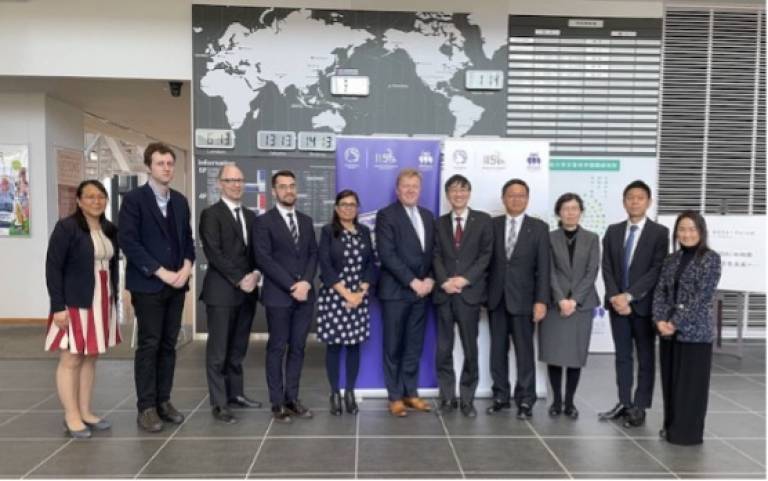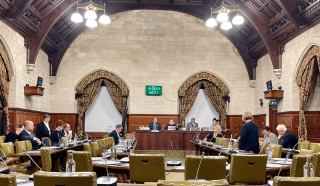The IRDR seeks to empower all to break down barriers to global disaster risk reduction knowledge.
Knowledge exchange
Knowledge exchange is a core part of the mission of the IRDR, which it seeks to fulfil by publishing high-impact reports, engagement with the media and building long-term partnerships. IRDR members have joined and led several field missions and have contributed to multidisciplinary reports. These reports have been drawn on extensively by the UK Cabinet Office and other government bodies in advice to ministers. For example, Prof David Alexander has acted as an expert working group member of the UK Cabinet Office initiative on revision of the National Security Risk Assessment. Prof Patty Kostkova has been appointed to the Technical Advisory Group (TAG) for the development of the Strategy and Action Plan on health emergency preparedness, response, and resilience (Preparedness 2.0) in the WHO European Region.
The IRDR has close links with London First, the business representative grouping, private companies, London Resilience and UK Government, including the Cabinet Office, and is developing links with intergovernmental organisations such as the International Migration Organization, Plan International, UN Women and other humanitarian NGOs.
We run regular events to engage the public and potential partners in issues relating to risk and disaster reduction and humanitarian action, including our Annual Conference and Humanitarian Summit, masterclasses, workshops and public lecture series.
UCL delegation to Japan
Dr Punam Yadav was part of UCL delegation to Tohuku University in March 2023 together with Vice Provost of research, innovation & global engagement Professor Geraint Rees, where a letter of intent was signed by both universities. One of the key discussions at this visit was establishing a Gender Centre at their International Research Institute of Disaster Science (IRIDes) to strengthen links with the UCL IRDR Centre for Gender and Disaster. The IRDR welcomed Associate Professor Anawat Suppasri from IRIDesS as a visitor in the department until December 2023.
The visit was part of a wider programme of engagement by IRDR staff and students, that began with attendance and presentations at the World Bosai Forum and concluded with the GADRI conference in Kyoto. Here Dr Punam Yadav, Prof Peter Sammonds and Prof David Alexander were joined by other staff and PhD students Lan Li, Ava Sullivan, Xiao Han and Zahra Khan.

The UCL delegation, including Dr Yadav and Associate Professor Anawat Suppasri, with Tohuku Univerity leadership at the International Research Institute of Disaster Science (IRIDeS).
Met Office partnership
A select group of leading UK universities including UCL were selected for the Met Office Academic Partnership (MOAP), aiming to better understand the increasing impacts of extreme weather and climate change and how these affect society.
Through the partnership, UCL will build on existing projects with the Met Office by bringing together an interdisciplinary team of researchers from 12 UCL departments and centres to transform hazard and data science in weather and climate modelling to help tackle global issues.
IRDR academics, coordinated by Prof Peter Sammonds and including Dr Bayes Ahmed, Prof Fatemeh Jalayer, Dr Gianluca Pescaroli, Prof Ilan Kelman, Prof Mark Pelling, Dr Saman Ghaffarian, Dr Sonja Ayeb-Karlsson and Dr Ting Sun, will bring their interdisciplinary expertise to the discussions by leading on the Hazard to Decision Making theme.
Public policy

Image from BBC News, courtesy of UK Covid Inquiry
Prof Mark Pelling was invited to join the ESRC Environmental Social Science Strategic Advisory Group. The purpose of the ESSSAG is to provide advice to support high-level strategic oversight and development of ESRC’s portfolio of investments in the environment space. The portfolio includes climate change adaptation and mitigation, transport, land use, agriculture, economics, energy, sustainability, infrastructure, and the circular economy/waste.
 Close
Close


